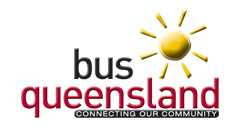Bus Queensland: Linking with community organisations – a low cost health and wellbeing program

Bus Queensland employs approximately 400 people at four depots and provides urban, school and charter bus services to the Park Ridge, Ipswich, Laidley and Toowoomba districts.
Bus Queensland identified two major health risk factors that could lead to an increase in health and safety issues:
- the sedentary nature of the business
- an average workforce age of over 50 years.
This was a red flag for management who recognised a need to promote and support health and wellbeing in the workplace. The main objectives were to:
- engage their workers in healthy lifestyle activities
- offer a low cost, community based program
- improve worker morale
- reduce the risk of injuries.
The program
A pilot health and wellbeing program was offered to Bus Queensland's employees at the Westside Bus Company's depot in Redbank.The CEO, general manager and human resources manager of the Westside depot were committed to the program's development and implementation from the beginning. Their involvement gave the company scope to investigate the needs of the organisation and its workers, as well as ensure adequate financial assistance was available to start and promote the program. Other depot managers at Westside also strongly encouraged and supported workers to get involved in the program.
A program champion was elected to help promote key initiatives and events and inspire other workers to participate through their own efforts to lose weight and improve their general health and fitness.
In order to deliver a low cost program, local sports and health clubs, and community programs were approached to be involved. This played a critical role in the development and delivery of the health and wellbeing program because it made it easy and cost effective for workers to access resources and facilities.
The initiatives included in the program are detailed below:
- Workers were offered reasonably priced gym and water aerobics access at the Goodna swimming pool located less than five minutes away from the depot.
- The 'Lighten Up' program, supported by Queensland Health, delivered two hour presentations over a 10 week period on various topics including:
- healthy lifestyle changes
- healthy food choices
- being physically active.
- The 'Snap' program, supported by Ipswich Hospital Foundation, provided free health checks by a registered nurse for blood cholesterol. When government funding for this program ceased, the University of Queensland provided a student doing his doctorate on 'obesity in men' to conduct fitness checks. This included a personal health questionnaire and supply of waist band monitoring equipment.
- A Bus Queensland walking group was started through the Heart Foundation's 'Walking for Better Health' program. Drivers involved in the walking group could participate in a local four kilometre, 40 minute walk.
There was some difficulty fitting the two hour presentations in the roster to cover breaks and split shifts which led to the development of a CD presentation that was available to drivers.
An audit of the program was scheduled for six months after implementation to assess the ongoing working participation, change in injury rates, moral, and value for money.
Results
Workers involved in the program regularly report back to management on personal achievements and discuss them informally with their workmates. The program has raised interest and awareness in healthy lifestyle activities and local and state funded community programs and initiatives.
As a result of worker feedback, healthier food and drink choices are being offered in the workplace and the changes have been accepted positively.
The interest and participation with the gym and pool membership was higher than expected with 42 drivers involved.
Uptake with the walking group was initially 15 drivers but reduced as summer weather arrived. The intent is to resume the walking group when the weather cools.
The key lessons learned from this pilot program were:
- source programs that suit the employee demographic
- have flexible program hours
- provide ongoing promotion to maintain awareness and interest.
It is recognised throughout the organisation that supporting health and wellbeing programs will positively impact employee engagement and retention and does not have to be costly or onerous.
In its second year, the program aims to:
- support and grow the Westside depot initiatives
- introduce complementary programs
- implement programs across the other Bus Queensland depots such as:
- healthy lifestyle changes
- a physiotherapist to speak to drivers on general fitness and exercise
- introduce healthy snack options in the workplace.
More information
Preventing illness and injury is an investment in your workforce. Find out what your organisation can do to improve health and wellbeing in your workplace:
- call us on 1300 362 128
- visit Health and wellbeing at work.